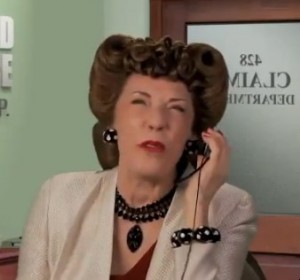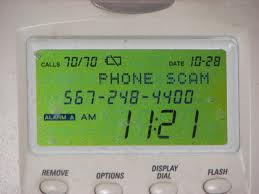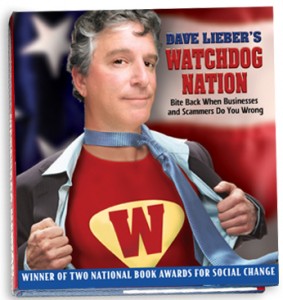Rachel from credit card services, where are you? Millions of Americans want to pull the plug on your constant robo-calling.
The Watchdog’s No. 1 source of complaints in recent months is these prerecorded calls from Rachel or other women who offer credit card services.
North Texans are furious about the barrage. They want it to stop. But they don’t know how.
Nobody really does.
Some people say they get several each week. This month, I received only one on my home line and another on a cellphone. I consider myself lucky.
Rachel is like a monster in a horror movie. Bullets bounce off her, but she keeps calling. Pressing a button to stop her calls doesn’t work. Talk to a human for help, but he wants your bank account number or a credit card number so he can take your money.
Robo-caller Rachel is a prerecorded voice coming from somewhere, but nobody is sure exactly where. Calls from Robo Rachel and others are designed to make recipients believe that they come from their bank or credit card company. A Minneapolis newspaper reporter tried to track her down a few years ago, but he gave up.
Why can’t the government, with all its resources, stop this?
Baby steps are being taken. In March, the Federal Trade Commission announced a breakthrough in this years-long national annoyance. The FTC forced an offshore company, Asia Pacific Telecom, out of business after accusing it of making more than 2 billion robo-calls. The government also seized $3 million worth of assets.
– – – – – – – – – – – – – – – – – – – – – – – –
More Watchdog Nation News:
Watchdog Nation Partners with Mike Holmes
America meets Watchdog Nation/Listen to Fun Radio Interview
2012 Book Edition Debuts on Good Morning Texas TV show
– – – – – – – – – – – – – – – – – – – – – – – –
The government charged that the company violated the National Do Not Call Registry and also spoofed caller IDs to hide the telemarketers’ phone numbers.
Along with the FTC, the Federal Communications Commission regulates telemarketers. In February, the FCC changed the rules for telemarketers in a big way. From now on, before making a robo-call, companies must get the consumer’s written consent.
Under Texas law, telemarketers do not need written permission as long as they have a prior business relationship. But under federal law, that prior relationship isn’t good enough anymore. Written consent, even if electronic, is now required for all out-of-state robo-calls.
There’s also a new kill-switch rule — a requirement that every robo-call must include “an automated, interactive opt-out mechanism,” according to the FCC. Consumers can revoke consent by pressing a few keys, and telemarketers must add rejected phone numbers to their internal do-not-call lists.
Here’s something to remember: Thanks to the new rules, any company that robo-calls a consumer without written consent is acting illegally and is likely a scammer, the FTC says.
“No legal business wants to break the law and risk having to pay penalties up to $16,000 per call,” FTC spokesman Frank Dorman says.
Last year, the Public Utility Commission of Texas received 900 complaints, but the culprits are tough to find because “there’s just very little information to pursue the source of these calls,” PUC spokesman Terry Hadley says.
In Mississippi this month, state regulators fined a California telemarketer a record $945,000 to get Rachel to stop calling. Roy W. Cox Jr. and five companies he controls were accused of hiding their true names on caller ID boxes and using “Card Services” and “Credit Services” as their business names, The Associated Press reported.
So what to do when Rachel calls? The best advice is hang up. Don’t engage and don’t press buttons on the phone.
Second, file a complaint with the FTC, the FCC and the Texas PUC. Although it may sound futile, staffers at all three agencies say that complaints help them catch the Rachels. “It helps us find patterns that can lead us to who they are, and then we can act against them,” Dorman says.
With the Asia Pacific case, he says, “We got a good chunk of it. But as long as there’s a way for the bad guys to continue to do it, they probably will. But we haven’t been able to stop it completely yet.”
We know.
# # #
Stopping robo-calls
File a complaint with the Federal Communications Commission at 888-225-5322 orwww.fcc.gov/complaints.
Sign up for the National Do Not Call Registry and also file complaints at donotcall.gov or 888-382-1222.
Sign up for your state’s Do Not Call list, too. Google your state name and Do Not Call list.
Remember to get on both state and federal do not call lists and register all numbers — land lines and cellphones.
# # #
Do you want to learn how to stop companies from bothering you? These tips and many others are in the award-winning book by Dave Lieber, author of this story. His book Dave Lieber’s Watchdog Nation: Bite Back When Businesses and Scammers Do You Wrong, shows you how to fight back — and win! The book is available at WatchdogNation.com as a hardcover, CD audio book, e-book and hey, what else do you need? The author was the national award-winning Watchdog columnist for the Fort Worth Star-Telegram. Visit our store. Now revised and expanded in a 2012 edition, the book won two national book awards for social change.
Read The Watchdog Nation manifesto here!
Visit Watchdog Nation Headquarters![]()
Like Watchdog Nation on Facebook![]()







